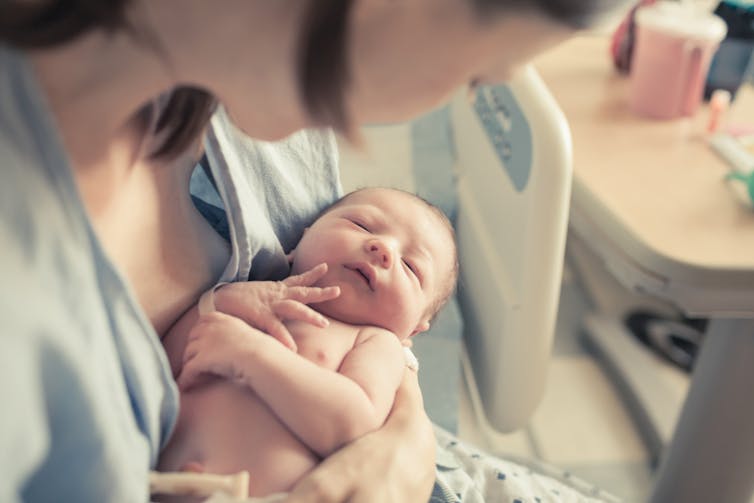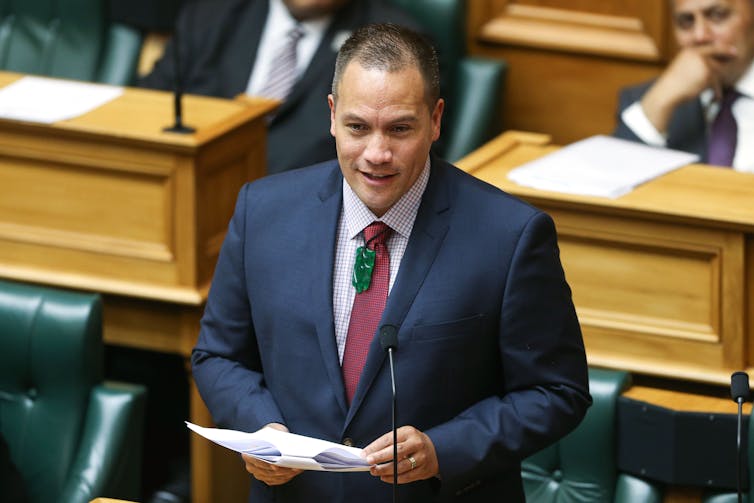Who are my parents? Why New Zealand’s 'creaky' surrogacy laws are overdue for major reform
- Written by Debra Wilson, Associate Professor, School of Law, University of Canterbury
Children born through surrogacy are much wanted and much loved. Under the current law, however, they can spend at least their first months of life in a kind of legal limbo.
This is because of the way several separate pieces of legislation cover the two types of surrogacy: gestational, where the child is not genetically related to the surrogate parent; and traditional, where the child is genetically related.
The resulting legal confusion is now the subject of a Law Commission review[1], which proposes significant reform based on the guiding principle that “the best interests of the child should be paramount”.
Right now, that cannot be said of the way surrogate children and their parents are treated under law that even judges have described as “creaky” and “inadequate”.
Who are the legal parents?
Surrogacy is regulated through the Human Assisted Reproductive Technology Act[2], which prohibits commercial surrogacy[3] and requires gestational surrogacy to be approved by an ethics committee[4].
But that act is silent on the legal parentage of the child, leaving this to be determined by the Status of Children Act[5]. Effectively, the woman who gives birth and her partner (if the partner consents to the assisted reproduction) are the child’s legal parents.
This means the intended parents have no legal rights to the child – even if they are the genetic parents – until they adopt the child under the Adoption Act[6].
But legal parentage is important. Legal parents transfer citizenship to their children and act on their behalf, such as giving consent to medical treatment or travel.
 Uncertainty about legal parentage affects everyone involved, including the child.
Shutterstock
Uncertainty about legal parentage affects everyone involved, including the child.
Shutterstock
Costly, burdensome and time-consuming
All children, independently of their method of birth, have the right to an identity, citizenship, health, education and to be cared for by their parents. However, the uncertainty regarding the legal parentage of surrogate-born children compromises those rights and the ability of intended parents to take care of their children.
The best interests of the child are not served by imposing on intended parents the duty to adopt their children from surrogate parents who never meant to be the legal parents or raise the children.
In particular, when one or both intended parents are the child’s biological parents, adoption distorts the child’s identity forever, engendering an unnecessary legal fiction.
Read more: When women are surrogate mothers: Is that work?[7]
This is confusing for intended parents[8], lawyers[9] and members of the public[10], particularly where the child is genetically related to the intended parents.
Furthermore, the adoption process is seen as costly, burdensome and time-consuming because lawyers and judges[11] are involved. It can take months to get a hearing.
It can also be invasive because Oranga Tamariki has to write reports on the suitability of the parents for parenthood.
For those engaging in international surrogacy, there are further problems. Oranga Tamariki needs to see the child in their new home to write the report for adoption, but the child cannot travel to New Zealand with adults who are not the legal parents without additional red tape (involving both countries granting discretionary visas).
 Labour MP Tamati Coffey’s members’ bill has not yet been drawn from the parliamentary ballot.
GettyImages
Labour MP Tamati Coffey’s members’ bill has not yet been drawn from the parliamentary ballot.
GettyImages
When is parentage transferred?
While the UK and Australia[12] have considered updating their laws to meet the increasing demand for surrogacy, New Zealand has failed to revisit this important law until now.
Two members’ bills by Kevin Hague[13] in 2018 and Tamati Coffey[14] in 2019 were never drawn from the parliamentary ballot. Coffey’s bill was re-entered into the ballot in 2021 but has not yet been drawn.
So the Law Commission review is both welcome and overdue. In particular, the complex decisions around legal parenthood in a surrogacy relationship need careful attention.
Read more: Commercial surrogacy: lifting legal restrictions is the moral thing to do to help people trying to have babies[15]
Current law states that egg or sperm donors are not legal parents. This leaves four potential legal parents: the surrogate, her partner and the intended parent or parents.
While a simple approach might be to designate the intended parents as the legal parents, it is crucial the surrogate has the right to make all medical decisions during the pregnancy, including abortion if necessary.
Legal parentage must therefore be transferred to the intended parents after the birth to respect the rights of the surrogate.
Read more: Making commercial surrogacy illegal only makes aspiring parents go elsewhere[16]
Greater certainty for families
This crucial process raises complicated questions of when and how this transfer happens, including whether time is allowed for the surrogate to change her mind.
The Law Commission proposes a “dual pathway” reform. The first provides that transfer of parentage should occur through a simple administrative process, provided the ethics committee has approved the surrogacy and the surrogate confirms her consent after birth to the transfer of parentage.
For more complicated cases, the Family Court would be able to make a post-birth order (which differs from an adoption order).
By giving due consideration to all these ethical issues, the Law Commission’s proposals appear to reconcile the interests of all parties, giving greater legal certainty to families while making babies’ lives a little easier.
The Law Commission is seeking submissions[17] on its proposals until September 23.
References
- ^ Law Commission review (www.lawcom.govt.nz)
- ^ Human Assisted Reproductive Technology Act (www.legislation.govt.nz)
- ^ commercial surrogacy (www.canterbury.ac.nz)
- ^ ethics committee (ecart.health.govt.nz)
- ^ Status of Children Act (www.legislation.govt.nz)
- ^ Adoption Act (www.legislation.govt.nz)
- ^ When women are surrogate mothers: Is that work? (theconversation.com)
- ^ intended parents (www.parliament.nz)
- ^ lawyers (www.canterbury.ac.nz)
- ^ members of the public (www.canterbury.ac.nz)
- ^ lawyers and judges (www.canterbury.ac.nz)
- ^ Australia (www.alrc.gov.au)
- ^ Kevin Hague (adoptionaction.co.nz)
- ^ Tamati Coffey (www.parliament.nz)
- ^ Commercial surrogacy: lifting legal restrictions is the moral thing to do to help people trying to have babies (theconversation.com)
- ^ Making commercial surrogacy illegal only makes aspiring parents go elsewhere (theconversation.com)
- ^ submissions (surrogacy-consultation.lawcom.govt.nz)

















